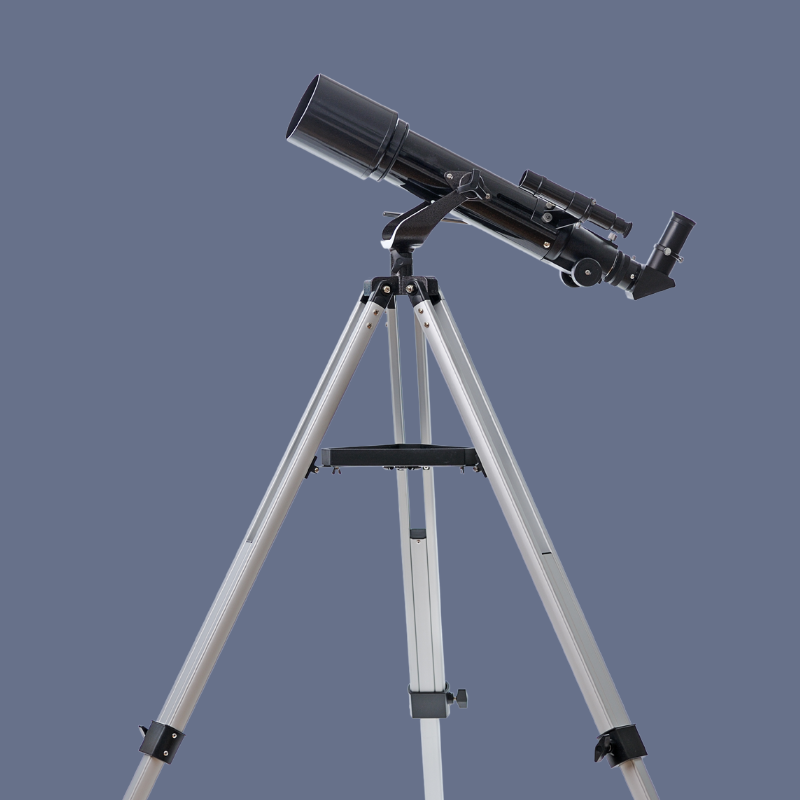Buying Guide
Welcome to the Star Chase Optics Buyer’s Guide! Choosing the right telescope can be overwhelming, especially with so many options available. To help you make an informed decision, we've put together this guide detailing the various types of telescopes we offer. Each type of telescope has unique features and advantages suited to different observing needs and preferences.
Reflector Telescopes
Overview:
Reflector telescopes use mirrors to gather and focus light, providing clear and bright images. They are typically more affordable than other types for a given aperture size, making them a popular choice for amateur astronomers.
Best For:
- Deep-sky observations (nebulae, galaxies)
- Large apertures at lower cost
Advantages:
- Excellent light-gathering capabilities
- Less chromatic aberration compared to refractors
- Typically lower cost per inch of aperture
Considerations:
- Requires periodic collimation (alignment of mirrors)
- Bulkier and less portable
Refractor Telescopes
Overview:
Refractor telescopes use lenses to gather and focus light. They are renowned for their durability and low maintenance, providing sharp and high-contrast images.
Best For:
- Planetary and lunar observations
- Terrestrial viewing
Advantages:
- Low maintenance (sealed tube)
- High contrast and sharp images
- Easier to use for beginners
Considerations:
- Chromatic aberration (color fringing) in cheaper models
- More expensive per inch of aperture
Catadioptric Telescopes
Overview:
Catadioptric telescopes, such as Schmidt-Cassegrain and Maksutov-Cassegrain, combine lenses and mirrors to correct optical aberrations and provide compact, versatile designs.
Best For:
- Versatile use (planetary, lunar, deep-sky)
- Astrophotography
Advantages:
- Compact and portable
- Good all-around performance
- Generally good for astrophotography
Considerations:
- More expensive than simple reflectors or refractors
- Can have longer cool-down times due to enclosed optics
Dobsonian Telescopes
Overview:
Dobsonian telescopes are a type of reflector with a simple, robust mount, making them easy to use and affordable. They are particularly popular for their large apertures at reasonable prices.
Best For:
- Deep-sky observations
- Beginner and intermediate astronomers
Advantages:
- Large apertures at a low cost
- Simple, intuitive alt-azimuth mount
- Stable and easy to set up
Considerations:
- Bulky and less portable
- Requires manual tracking of objects
Astrograph Telescopes
Overview:
Astrograph telescopes are designed specifically for astrophotography, providing wide fields of view and high-quality images.
Best For:
- Astrophotography
Advantages:
- Optimized for imaging
- Wide field of view
- Precise and accurate optics
Considerations:
- Expensive
- Less versatile for visual observing
Smart Telescopes
Overview:
Smart telescopes integrate advanced technology, including automatic alignment and object tracking, making astronomy accessible and user-friendly.
Best For:
- Beginners
- Tech enthusiasts
Advantages:
- Easy setup and use
- Automated tracking and alignment
- Can be controlled via smartphone or tablet
Considerations:
- More expensive than manual telescopes
- Reliance on technology (requires power/battery)
Solar Telescopes
Overview:
Solar telescopes are specialized for observing the sun, equipped with filters to safely view solar phenomena such as sunspots, prominences, and flares.
Best For:
- Solar observations
- Educational and scientific purposes
Advantages:
- Safe solar viewing
- High-quality solar filters
- Detailed views of solar activity
Considerations:
- Specialized use (not suitable for night observations)
- Higher cost for quality models
Choosing the Right Telescope
When choosing a telescope, consider your observing interests, budget, and level of experience. For beginners, refractors or Dobsonians offer excellent value and ease of use. For those interested in astrophotography, catadioptric or astrograph telescopes are ideal. Smart telescopes are perfect for tech-savvy users looking for convenience, while solar telescopes are a must-have for anyone fascinated by our closest star.
For personalized recommendations, feel free to contact our expert team at Star Chase Optics. Happy stargazing!





